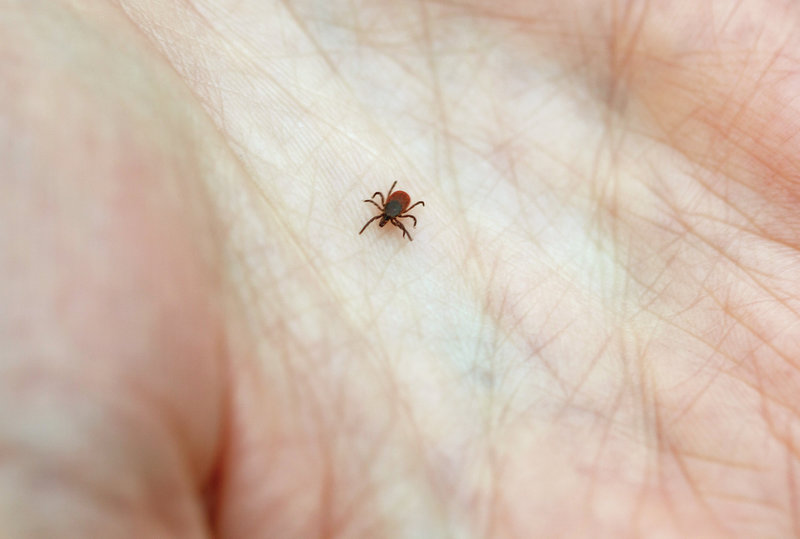11 Silent Signs You Could Have an Eating Disorder
An American dies every single hour from an eating-disorder related illness. Knowing these early warning signs could just save a life.
You can be genetically predisposed to an eating disorder
Considering eating disorders are incredibly common, you might be curious to know what causes these unhealthy relationships with food and mirrors in the first place. The long and the short answer is both your genetics and societal influences. “We say that genetics load the gun and environment pulls the trigger,” explains Bonnie Brennan, the senior clinical director of Adult Services at Eating Recovery Center in Denver, Colorado. “Genetic predisposition, though not necessary, can play a big part in the risk.” A study in 2011 confirms that for white females, developing an eating disorder has a high degree of heritability. “More research is needed to determine the prevalence of eating disorders among those of different races and ethnicities, but we do see symptoms of eating disorders across all populations,” Brennan adds.
A big life change can evoke an eating disorder
You might not realize you have a predisposition to anorexia or binge eating (especially if your parents never discussed their struggles with you) until something life-altering or impactful happens to you (aka a trigger). “Those at higher risk may also be struggling with other mental health and substance use problems, stressors, or exposure to activities that emphasize size and weight. We also see eating disorders develop in response to life stage changes such as puberty, going to college, mid-life challenges, and loss of relationships,” Brennan notes.
It’s not just anorexia that’s deadly
Though anorexia is most commonly reported on in the media, there are several types of body dysmorphia (unhealthy relationships with body image) that can impact your health and spirit. Anorexia is classically defined as someone who severely restricts their caloric intake—either by not eating or exercising heavily to burn off what is perceived as fat. Bulimia is when a person goes through a rollercoaster of binge eating, followed by purging—making themselves throw up or have diarrhea. Exercise-orexia is what it sounds like: being overly obsessed with getting fit and creating an ideal physique. Orthorexia is a condition of being hyper-focused on eating only the healthiest, cleanest foods. Another less well-known disorder is binge eating, in which you scarf down more than what’s comfortable, with no control over your actions. All of these conditions can be life threatening and dangerous, and they all have similar warning signs.
Sign #1: You think about food all the time

Take a moment and reflect on the past few hours of your day. Whether you were spending time with pals, running errands, or working, what thoughts consumed your mind? Brennan says that when food is at the forefront of your consciousness nearly all the time, you could be heading down an unhealthy road. “The more time you spend thinking about food, how you are going to eat it and prepare it, and what you might do to make up for eating behaviors that you have determined are unacceptable, the more likely this could be a silent sign of an eating disorder,” she explains. If you’re anxious about how much mental energy you’re dedicating to calories, nutritional value, and food quantity, consider recording how often these thoughts come along. You can bring this information to your doctor, who can help you understand how to control and reduce these instances.
Sign #2: Success at dieting makes you feel confident

Brennan says that a high percentage of patients at the Eating Recovery Center reported that trying out a diet and seeing results was what caused their eating disorder to begin. While it might seem harmless to eat healthier and shed pounds (especially if you’re prepping for an important event or have packed on some winter weight), it’s less about the physical act of dropping pounds, and more about how it makes you feel, and how you define yourself as a person. “Often what starts as an innocent attempt to diet or eat healthy can kickstart an eating disorder, as the individual quickly finds that their new behavior ‘solves other problems,’ such as increasing peer acceptance, soothing anxiety, or getting attention in a new way,” Brennan explains.
Sign #3: You’re avoiding dealing with something big

No matter how rosy your life appears to your friends on Facebook, part of being a human is enduring the natural ups and downs of life. However, if you’ve recently experienced a death in the family, a scary car accident, or even a disappointing breakup, you might be inclined to skip through the recovery steps and instead, focus on something you feel you can control. “Often, our thoughts serve as a way to focus our headspace away from other things that may be painful, such as grief, conflict, worries, trauma, and stress,” Brennan says. “Do yourself the favor of finding a safe place to begin to talk about these concerns, and help to prevent your mind from protecting you by continuing to fuel eating-disordered thinking.”
Sign #4: You scrutinize every nutritional label

You want to make sure you’re not eating overly processed foods riddled with unnecessary added sugar or chemicals. But if you’re spending hours looking over ingredients in the grocery store, you might be developing a dangerous obsession. “At Eating Recovery Center we emphasize normalized eating and learning to have a balance of all food groups,” Brennan explains. People with orthorexia, in an innocent attempt to be a healthy eater, start to eliminate more and more foods they perceive as “bad,” and will only allow themselves to eat “good” foods. But when you begin to give whole groups of food a positive or negative connotation, you often miss out on essential ingredients and nutrients that your body needs to function properly. “Our bodies are not meant to follow rigid, prescribed diets for long periods of time,” Brennan says, “and have evolved over time to need certain combinations of nutrients to keep us going and keep us healthy.”
Sign #5: You’re getting increasingly rigid about food choices

If you always modify your food order at restaurants to the point that it raises eyebrows with your friends, it might be time to reexamine your motivation. The stricter you become with what you eat, the less enjoyment you get out of your meal. “Especially if they start to experience extreme weight loss, an individual can become more and more rigid about food choices, to the point where they may not be able to eat socially without bringing their own food or even start to judge and criticize their kids, family and friends for their food choices,” Brennan says. “If this sounds like you, you may want to seek guidance and consultation from a dietician about your nutritional needs and how to balance your diet.”
Sign #6: You are obsessed with how much you weigh

There are so many numbers that arguably matter more than how much you weigh—your resting heart rate and your cholesterol level, to name a few. So if you have a sudden, paralyzing, hyper-focused viewpoint on those numbers by your toes, you may be developing what Brennan calls a dysfunctional relationship with the scale. “Do you find that you are secretly weighing yourself more often than normal? Is your mood for the day dramatically changed by the number on the scale? This could be a silent sign of an eating disorder developing,” she explains. “Judging oneself by the number on the scale leads the brain to troubleshoot ways to change that number, such as modifying food intake or getting more exercise. It is troubling to see a number you don’t want to see day after day.”
Sign #7: You’re starting to use laxatives to drop weight

Laxatives can be helpful occasionally for people with digestive problems; they’re not meant as a weight-loss aid. “Laxatives, cleanses, diuretics, diet pills, etc. are often abused by people who are desperate to see the number on the scale go down. If you find yourself in a codependent relationship with your scale, try putting it away or having a friend store it for you for a while,” Brennan says. “If you need to weigh yourself in order to follow medical advice, talk with your provider about alternatives to having a scale in the home, such as using a gym or a pharmacy one time per week.” Or, if you can, take out the number completely by suggesting a blind weight, which Brennan describes as “stepping on a scale backwards and having a professional record your weight without your seeing.” It can be very freeing to have your day start without they tyranny of the number on the scale.
Sign #8: You eat until you’re stuffed, and you can’t stop

Just as someone who is struggling with anorexia-like symptoms cuts way back on what they eat, another person who battles overeating might not be able to stop. “Believe me, there is nothing wrong with comfort food, and all of us eat more than is comfortable from time to time,” Brennan says. “However, if you find yourself repeating a pattern of planning on eating to the point of being stuffed or if you are experiencing a loss of control with eating, it could be a silent sign of the beginning of binge eating disorder.” You might turn to this habit during high-stress times, when you need to quell your worries and anxieties. “Foods, especially sugary, carbohydrate-rich sweets and snacks, can give one a rush of pleasure and sense of comfort and calm,” Brennan says. Many of us may have had well-meaning parents soothe us when we were children with sweets and sugar when we were fussy, so it sets a pattern that’s easy to fall back on later in life. Brennan recommends experimenting with healthy self-care behaviors such as a warm bath or sauna, using a weighted blanket, cuddling with a favorite pet, or trying a restorative yoga practice such as yin yoga or yoga nidra.
Sign #9: You berate yourself if you don’t work out every day

Regular exercise is essential for ideal health, and doctors recommend at least 3 to 4 workout sessions a week. But if you find yourself freaking out when you miss leg day at the gym, you might be developing an unhealthy attachment to your fitness regimen. “There is no doubt that a regular exercise practice is healthy and can help alleviate stress and mental health issues such as anxiety and depression. However, when hitting the gym or going for that 20-mile bike ride is trumping other important life events, it may be time to consider that a problem is developing,” Brennan says. “If you are doing things like skipping your kids’ dance recital, turning down social invitations, or feeling compelled to go exercise during your work day or in the middle of the night, you may be developing a compulsive relationship with exercise. This can lead to eating disorders and dangerous weight loss, poor nutrition, fragile bones, and injuries.” If this is you, see a sports psychologist and dietician who specializes in sports nutrition to help you get on a balanced movement plan.
Sign #10: You follow “thinspiration” Instagram accounts

It’s never been easier (or encouraged) to follow the lives of celebrities. You can see what nearly any model or actress is doing at any hour of the day via their social media accounts, and while it might be interesting, it could also create some pretty negative and damaging expectations for what your body should look like. And it’s not only celebs. Social media influencers with the so-called “perfect body” can be dangerous to follow too. “Social media sites that post Thinspo and Fitspo media images and messages meant to inspire thinness and fitness, can lure people into the spiral of feeling less than and ashamed for not being thin or fit enough,” Brennan says. Unfollow these accounts so you won’t be constantly tempted and pressured to change who you are. Read more about how to have a healthy relationship with social media.
Sign #11: You’re feeling ashamed of yourself

Repeat after us: Never, ever shame yourself about your relationship with food and your body. “All coping skills serve the function of helping us to survive tough times, and sometimes these coping skills can also become problems, whether it’s in the form of food, exercise, substance use, or working, to name a few,” Brennan says. “Try to assess and consider the function your behavior is serving, and seek help from professionals and your support system.”
Source: RD.COM
“11 Silent Signs You Could Have an Eating Disorder” by:LINDSAY TIGAR


